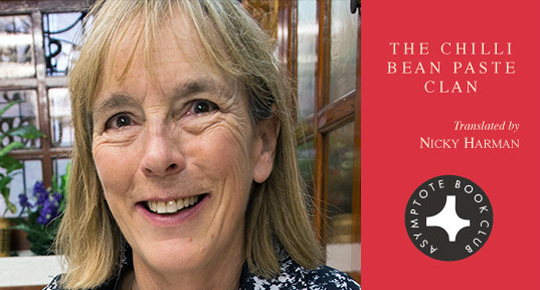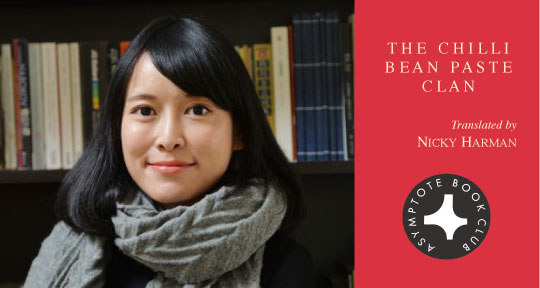Continuing our Asymptote Book Club interview series, Assistant Editor Kevin Wang talks to Nicky Harman, translator of Yan Ge’s The Chilli Bean Paste Clan. In addition to co-Chair of the Translators Association (Society of Authors), Nicky Harman is one of the foremost contemporary Chinese-to-English translators and a passionate advocate for Chinese literature in English. Her previous work includes translations of novels by Jia Pingwa and Xu Xiaobin.
Read on to find out why Yan Ge asked for the swearing to be made more “colourful” in the English version of her work, which sections of The Chilli Bean Paste Clan were almost untranslatable, and why relying on Google Images can sometimes be a dangerous approach to translating…
Kevin Wang (KW): In your acknowledgements, you mention that Yan Ge “went above and beyond the call of duty in examining and discussing the English text.” How would you describe the differences between working with an author closely involved in the process and translating a nonliving author?
Nicky Harman (NH): Well, I do like my authors to be alive! I almost always want to be able to raise a few queries with them. For instance, with Jia Pingwa, I needed to know more about a rudimentary cooker that the migrant workers used in 高兴 (Happy Dreams). He kindly did a sketch for me, and it turned out to be made from an old oil drum. That’s the kind of crucial information that you couldn’t get if the author was dead: in this case, the internet was no help.




